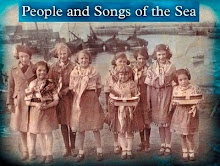The delicate poppy has become a flower which symbolises different things to different people.
The Common Corn Poppy (Papaver Rhoesa) - its seeds hidden in the ground, has risen to flourish from distrurbed land and in the carnage of WW1 it flowered in abundance in war torn areas where so many lost their lives. In area of large open farmland, Flanders covers the neighbouring parts of Belgium, France and the Netherlands. Here, at Ypres in April 1915, from artillery fire, exploding shells and toxic gas, more than 200,000 men were killed during three of the war’s most savage battles lasting just 17 days. It was called the "war to end wars"
In Flanders fields the poppies blow
Between the crosses, row on row,
That mark our place; and in the sky
The larks, still bravely singing, fly
Scarce heard amid the guns below
We are the dead. Short days ago
We lived, felt dawn, saw sunset glow,
Loved, and were loved, and now we lie
In Flanders fields......
Lt Col John McCrae, Born in 1862
Died in active service in Boulogne, 28.01.18
 |
| East Lothian Poppy Field on the banks of the Firth of Forth Shona McMillan © All Rights Reserved |
Serving at the second Battle of Ypres, Scots-Canadian, Lieutenant Colonel John McCrae was working as a field hospital surgeon. Half the Canadian brigade to which he was attached was killed. Witness to such carnage, his traumatic experience proved to be the catalyst to his now famous poem “In Flanders Fields”. Anonymously sent to Punch magazine, it was published in December 1915. Then, after his death in active service in 1918, McCrae’s poem was published posthumously in a collection of his work.
Reprinted in the 1918 November issue of Lady’s Home Journal, Moina Michael, War Secretary of the American Young Men's Christian Association (YMCA), came to read the poem 2 days before Armistice Day. In progress was the 25th YMCA Conference of Overseas Secretaries and Moina had brightened its headquarters with flowers. In appreciation, delegates gave Moina a cheque for ten dollars. Shortly before she had read McCrae’s poem and showed it to them. Moina accepted their gift but explained she would use it to buy red silk poppies. She explained she had vowed to wear a poppy in remembrance of those killed. Buying 25 poppies, she distributed them amongst those who had effectively given the first ‘donation’ for remembrance poppies.
Raised in Georgia, Moina’s family had originated from Britagne, France. A deeply Christian lady, Moina was motivated to help others and worked in education until she resigned to assist in the war effort. Moina wanted to travel abroad in war service but at 49, she was considered too old so she relocated. At the YMCA, Moina worked in a part of the building described as a sort of canteen area with comfortable seating where servicemen met their loved ones for the last time before going overseas. At first hand, Moina saw the intense emotional pain caused by the separation of loved ones. Profoundly moved by McCrae’s poem, later she described it as an almost spiritual experience. Equating the poppy’s emergence from devastation, to the magnificent rainbow appeared in the sky after the biblical flood. For Moina, her vow on November 9th changed her life forever and the personal crusade she had embarked on was one from which millions of people would benefit.
Oh! You who sleep in Flanders’ fields,
Sleep sweet - to rise anew........
We cherish too, the poppy red
That grows on fields where valour led.
It seems to signal to the skies
That blood of heroes never dies,
But lends a lustre to the red
Of the flower that blooms above the dead....
In Flanders’ fields.....
Wear in honour of our dead.
Monia Michael, 1869 - 1944
Largely at her own expense, Moina campaigned to persuade ex-servicemen to adopt the poppy and wear it in pride and honour for the fallen. A short while later, through the YMCA, Moina met war widow Madame Guérin on a visit from France. With significant success, Guérin took up the fundraising challenge and organised production of poppies in France for the benefit of children in war torn Europe. Guérin then came to Britain and approached Field Marshall Earl Haig who had been the Commander-in-Chief of the British Armies in France and Belgium. Principal founder of the British Legion, Haig was so impressed by Guérin’s fundraising idea that he gave approval for the first Poppy Day Appeal in 1921.
WW1 was not to be ‘the war to end all wars.’ Twenty-one years on, the first air attack of WW2 in Britain took place over the Forth, Lothians and Fife.
Today, wars continue around the world and soldiers die in countries far from home. Whatever a person's position is in respect of the rights or wrongs of these conflicts - it is important that we never forget those who have died as soldiers are not just numbers lost in conflict but are sons, daughters, fathers, mothers, brothers, sisters. People and the wars and causes in which they die should be remembered, not least to communicate how important it is in 'today's civilised world' human beings should be able to resolve issues without having to go to war in the first place. When I stand and look out over the calm waters of the Firth of Forth, it seems impossible that a war could have touched these shores - but it did and conflicts still continue. Time passes, yet it remains -
Humans have much to learn in resolving
their differences through peaceful measures.
 |
| Looking up the calm waters of the Firth of Forth towards Edinburgh Shona McMillan © All Rights Reserved |









.JPG)






No comments:
Post a Comment